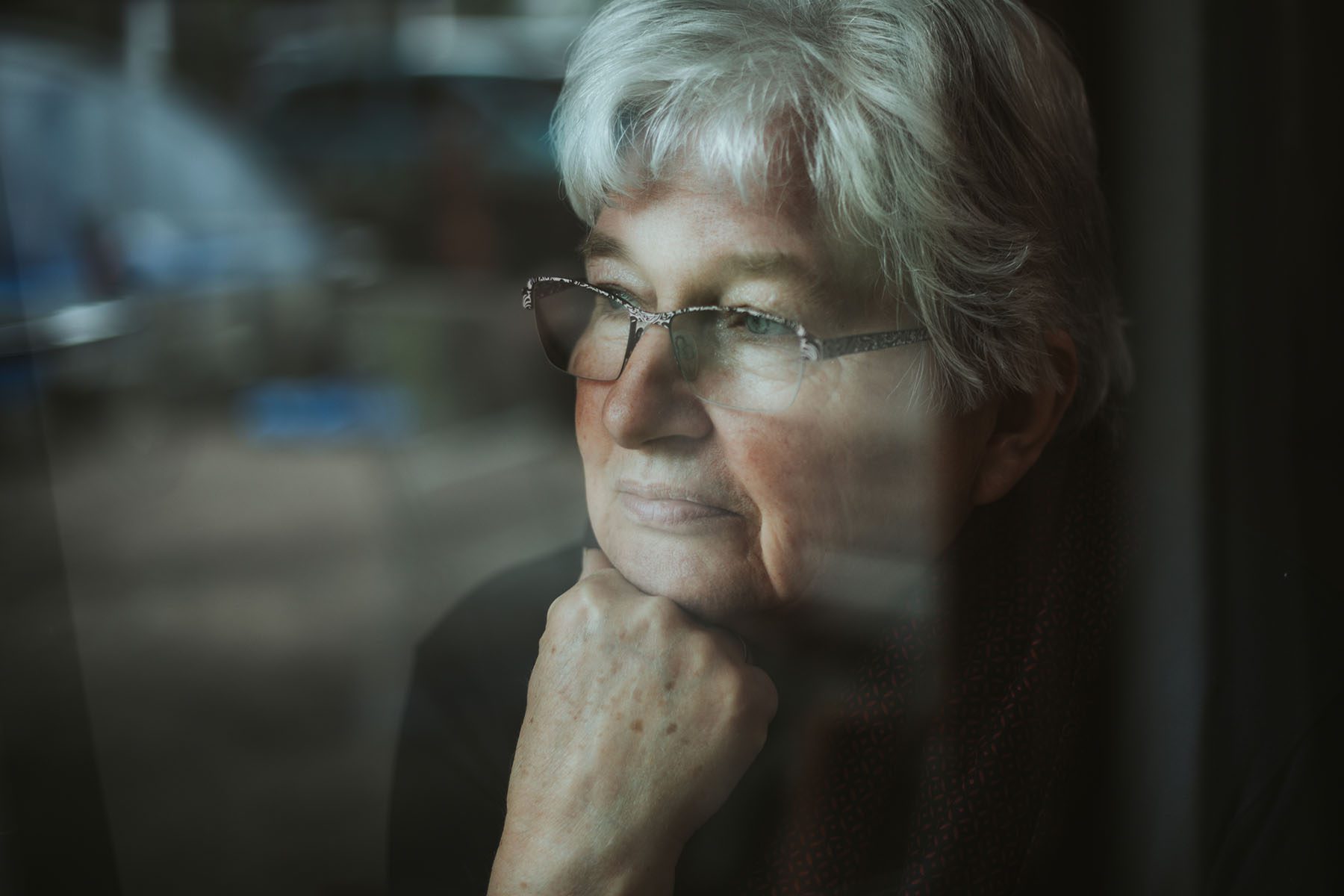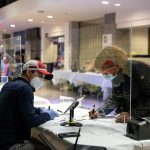Devastated, worried, disappointed, disgusted, frightened, discouraged and — most of all — unseen. That’s how more than 50 women over the age of 50 responded when asked how they felt about the way things were going in the country.
Last week, AARP convened six focus groups, separated into White Republicans, White Democrats, undecided voters, Latinas, Asian American/Pacific Islander (AAPI) and Black women, all over 50. The 19th reviewed the virtual 90-minute focus groups, which were conducted between May 23 and 25. Participants were not identified by their full names and were guaranteed anonymity, according to AARP’s guidelines.
The focus groups were convened as a follow-up to a March survey that found these older women are not happy, dissatisfied by the state of the economy and frustrated with their elected officials. Independent moderators asked each of the groups about how they feel about the state of the world, their personal lives and the lives of their children and grandchildren. The women also discussed what issues are most important to them ahead of the midterms, what they want from their elected leaders and other concerns specific to their demographic and voting bloc.
Women over 50 constitute a key voting bloc in the upcoming midterm elections: They account for more than 1 out of every 4 registered voters, exhibit high turnout rates and cast nearly a third of all ballots in recent elections. Yet, according to the survey, only 17 percent said they had made up their minds on who they were voting for in November.
And for the majority of them, character counts: Many of the focus group participants said they’d look more at the character of candidates instead of the platform and policies. Civility, integrity, morality and personal responsibility were most important to them.
“It’s just so frustrating that politicians can’t seem to work together,” an AAPI woman in New York said. “They’re so opposed to each other that nothing really gets accomplished, and I feel like, at this point, there’s never going to be any resolution or major changes that are going to be made to help the people of the country. And that’s why I’m angry.”
The vast majority of these older women agreed that inflation is making it increasingly harder to get by, dwindling Social Security funds are threatening their retirement prospects, health care costs are often unmanageable, crime is a major concern and, by and large, they feel “invisible.”
One woman, a White undecided voter who said she lives alone with three cats, said she is scared, lonely and not sure how things will work out. Her longtime partner died in March 2020, just before the pandemic shuttered businesses and forced everyone indoors.
“Then the world went to hell and nobody touched me for over a year,” she said. “There was nobody here. I live in the house that we lived in and his family took all of his money. We went from getting over $200,000 a year to just $12,000 a year. I don’t have that support system anymore, the person I did everything with, and there’s no way to rebuild it. … I’m trying to figure out how to make a life again.”
Money — the rise in inflation and the decreasing affordability of daily life — was top of mind for many of the women.
A White undecided woman on food stamps said she is not able to get as much food at the grocery store as she did even two months ago. An AAPI woman said she had to stop using her car as much because of the skyrocketing gas prices. And a third, a Black woman with a disability, said that on top of food and gas prices, a new landlord is evicting her from a house she lived in with her mother for 15 years after raising the rent by more than double what she had been paying.
“If this inflation keeps going the way it’s going, I’m planning on working until the day I die,” said a nurse in California who is selling her house to find more affordable housing. “They’ll be prying my fingers off the keyboard.”
Women in each focus group brought up inaccessible or unaffordable health care, overwhelming caregiving responsibilities, spikes in crime, and the depressing reality of long-term climate change when asked about future generations. And when asked whether they felt elected officials listen to women over 50, nearly every participant responded with an immediate and resounding “no.”
Many women in the Latina group said they felt particularly unheard. One 50-year-old woman said that she has lived in New York, Pennsylvania and Florida and reached out to local politicians and state representatives for help but to no avail. She did not elaborate on the specifics of her requests, but spoke more broadly about receiving Social Security and disability benefits, undergoing three failed back surgeries and struggling to afford the medical costs associated with a recent cancer diagnosis. Another participant said she felt triply ignored and readily dismissed as a Hispanic woman of a certain age. A third from Arizona said: “There are so many Hispanics here yet we don’t really have a say because our politicians for the most part are not Hispanic, and they’re playing to their base. I don’t know if we’re not speaking loud enough, but they’re not listening to us.”
The sentiment was echoed in other focus groups, including by a 60-year-old in Virginia who identified as an undecided voter who felt ignored by politicians: “I always say, ‘What are you doing for me?’ I’m not a parent. I don’t have children in school. They can’t answer it, and they never do. I ask for more opportunities and they look the other way and kind of just say they’re not going to deal with that.”
Several others also brought up age discrimination in the workplace — an acute pain point for many as living costs rise, savings dwindle and expectations for careers get extended. One stay-at-home mother said she’s about to be an empty nester and hopes to reenter the workforce after being unemployed for about two decades. But at her age, she said, she knows she’ll have to scramble for a job, and “many of my friends and neighbors are in the same boat.”
“Once you reach 50, you disappear from the corporate world,” a Latina artist and mother in Texas said. “No one will hire you. It’s hard to find a job. … Everybody says they’ll interview you, but they’re always going to choose somebody younger. That’s the reality.”
Another participant, a licensed clinical counselor who works in a school, said women her age are “too old for certain jobs, but too young to retire.”
The women spoke about a world that seems to cater to only young people and young families — from politicians to advertisers to employers to strangers on the street.
“I’ve been feeling invisible recently,” said one undecided voter who lives in Colorado with her adult granddaughter and two cats. “I just turned 60, and I feel like when I go out people don’t see me. It’s kind of freaky, and I don’t really know what to do with it but it happens.”
The feeling of being overlooked was expressed across the board, but the focus group participants were more split when it came to their feelings about their children’s lives and those of the next generation. The majority of the Latinas and Black women said they were worried but more excited, optimistic and encouraged by the children in their lives. Many saw opportunities and the possibility of economic mobility for their children that they were not able to access themselves. Most of the White women, from across the poiltical spectrum, and AAPI women, however, voiced worry, stress and fear.
One White woman, an undecided voter, said that when she looked to the future she saw climate change disasters, pandemic-induced isolation among students and never-ending work. Single and living alone, she said she felt stuck and without choices. Recently, she had to decline a Zoom call with her 18-month-old granddaughter because she couldn’t afford to take a break from working:
“I’m never going to be able to retire because I can’t save anything. My grocery bill has doubled. I work from home, so I don’t have a gas bill, but everything is skyrocketing to the point where I can’t be the grandma I want to be,” she said. “I can’t miss $20 of work money to Zoom with her, and it’s really sad. I hung up from the phone, and I just wanted to cry.”
Another woman was forced to scrap retirement plans in the last six months and get a new job. “How long do I have to work before I can retire?” she asked. “I’ve been waiting my whole life to live without an obligation, and I’m just feeling like it might not even be there in the end.”
Everybody is exhausted, another White undecided voter agreed. She helped take care of her grandmother when she was aging, and her own daughter recently moved to her neighborhood so she could care for her mother in the same way. But, not everyone has that same kind of support and something needs to be done.
“If we are all spent and have no energy,” she said, “then how are we supposed to take care of our elderly?”







